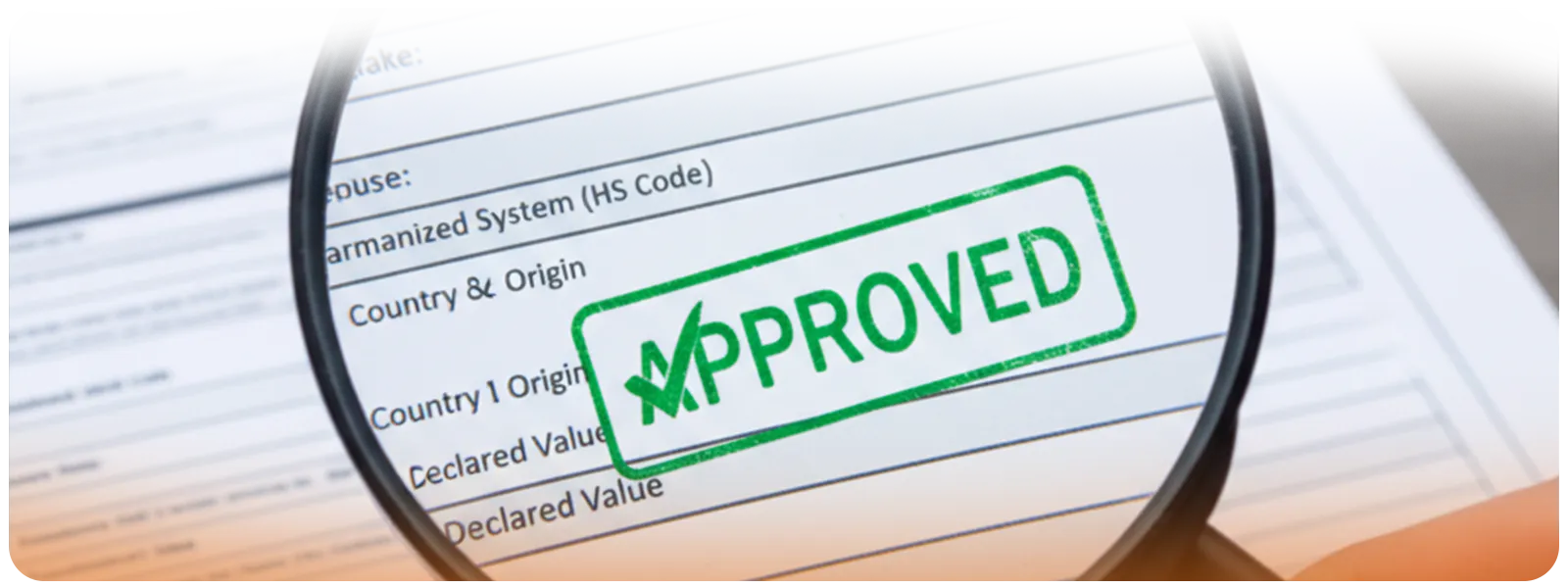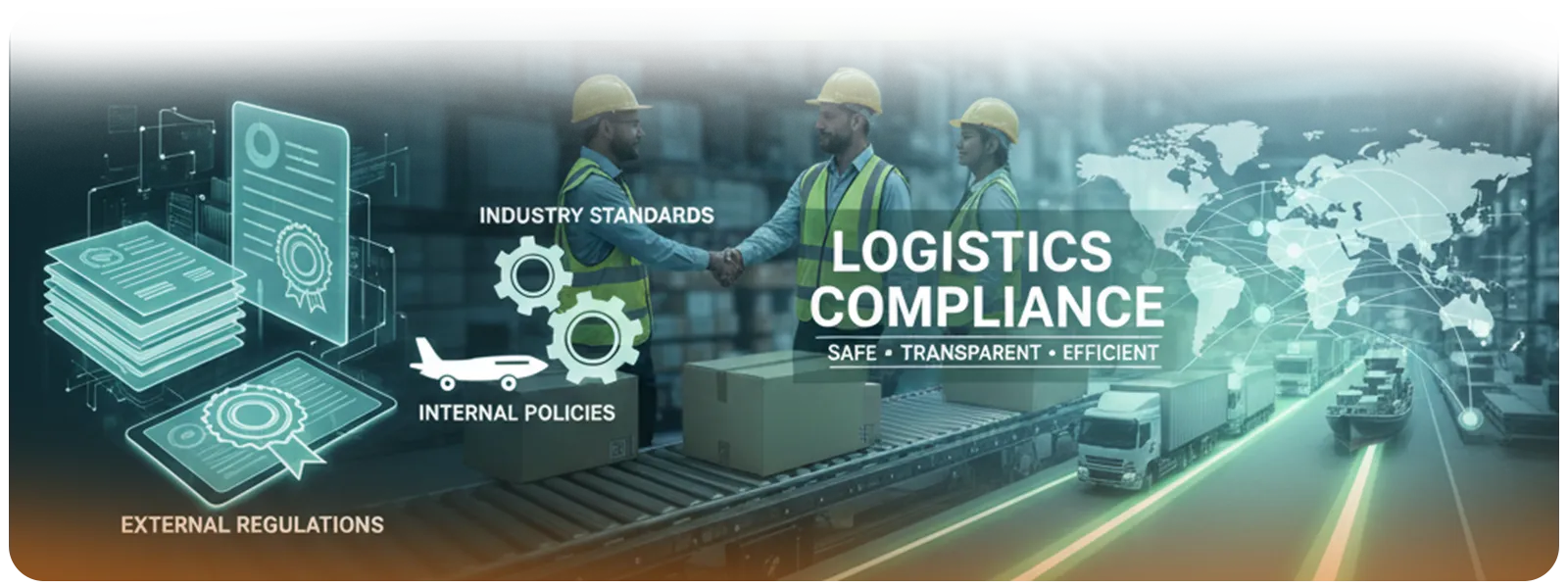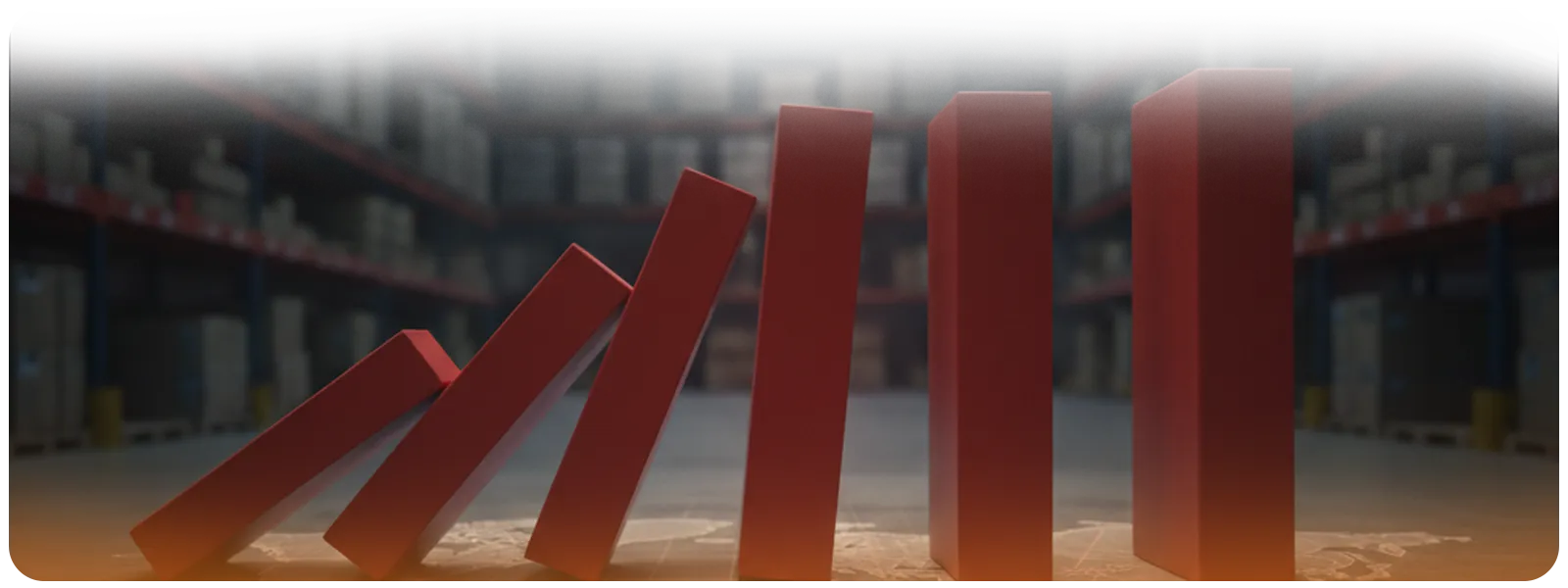
Why Logistics Compliance Makes or Breaks a 3PL, and How Outsourcing Keeps You Protected
Imagine your most important shipment getting stuck at the border over one missing form. This costly headache is why logistics compliance, following the rules for moving goods, is so critical.
It's the official rulebook for shipping, and ignoring it can damage your reputation. This post explains why following these rules is important and how getting expert help protects your business and keeps your customers happy.
What is Logistics Compliance?

In simple terms, logistics compliance means following all the rules, regulations, and standards that govern how goods are transported, stored, and handled.
It's not just obeying laws; it's a strategic approach to ensure every step in your supply chain, from packaging and documentation to your relationships with carriers, is conducted ethically, safely, and legally.
This includes adhering to:
- External Regulations: Laws set by governments and international bodies.
- Industry Standards: Best practices for safety, quality, and security.
- Internal Policies: Your company's own code of conduct and operational procedures.
The goal is to create a safe, transparent, and efficient environment for trade, reducing risks for everyone involved.
Who Are the Key Regulatory Bodies?
Compliance isn't managed by a single entity. It's a network of national and international organizations that create and enforce the rules.
Here are some of the most important ones:
The Real Price of a Compliance Mistake

Ignoring logistics rules can cost your business dearly. The consequences aren't minor inconveniences; they are significant setbacks that impact your bottom line and reputation.
- Hefty Fines: Government agencies can issue substantial penalties. A single record-keeping error could cost over $1,600 per day, with serious violations reaching tens of thousands of dollars.
- Costly Delays: Incorrect paperwork can get your shipments stuck at the border, leading to mounting storage fees and missed delivery deadlines.
- Damaged Trust: These delays frustrate customers and can permanently damage their trust in your business's reliability.
- Legal Risks: In severe cases, repeated non-compliance can even lead to legal action.
In-House vs. Outsourced Compliance

When it comes to managing logistics compliance, businesses face a critical choice: build an in-house team or partner with an outside expert.
Each path has significant implications for your costs, risks, and ability to focus on growth.
The In-House Approach (DIY)
Handling compliance in-house means hiring your own dedicated staff to manage everything from paperwork to tracking regulatory changes.
The main advantage is having direct control over the entire process.
However, the downsides are substantial:
- High Costs: You are responsible for salaries, benefits, ongoing training, and expensive software licenses. These are fixed costs you pay regardless of your shipment volume.
- Constant Upkeep: Logistics regulations are constantly changing, and keeping your team up-to-date is a complex, full-time job.
The Outsourced Approach (Hiring Experts)
Outsourcing involves partnering with a specialized firm that handles all your compliance needs. This approach offers several key advantages:
- Instant Expertise: You gain immediate access to a team of professionals who are experts in logistics regulations.
- Cost Efficiency: You avoid the high overhead of an in-house department and instead pay for the services you use, turning a large fixed cost into a manageable variable one.
- Focus on Your Business: It frees up your team to concentrate on core activities like product development, sales, and customer service.
- Reduced Risk: Your partner takes on the responsibility of navigating compliance, transferring much of the risk away from your business.
Taken together, these advantages are precisely why forward-thinking companies partner with specialists to handle their comprehensive compliance and legal services.
How Logistics Outsourcing Turns Compliance into a Competitive Advantage
Partnering with a compliance expert does more than just keep you out of trouble; it gives your business a serious competitive edge.
When you let specialists handle the complexities of logistics, you can turn a potential weakness into a major strength.
- Build Customer Trust: Smooth, predictable shipping is the foundation of a great customer experience. When customers know their orders will arrive on time and without issues, they are far more likely to trust your brand and become repeat buyers. A strong compliance record signals that your business is reliable and well-managed.
- Improve Efficiency and Lower Costs: Outsourced partners use advanced technology and streamlined processes that lead to faster, more accurate deliveries. For example, one logistics company that outsourced its billing process saw its error rate drop from over 10% to less than 3%. This simple change saved the company money on wasted trips and allowed them to grow their business.
- Gain a Competitive Edge: While your competitors are stuck dealing with customs delays and frustrated customers, your operations run smoothly. This reliability becomes a key reason why customers choose you over others, helping you stand out in a crowded market.
Ready to stop stressing over shipping regulations? Connect with our team today and discover how outsourcing compliance can protect your business and drive long-term success.
FAQs
1. What exactly is logistics compliance?
It’s the process of following all rules for transporting, storing, and handling goods to ensure safety, legality, and ethics.
2. Why is compliance so important for my business?
It prevents fines and delays, protects your reputation, and builds customer trust through smooth, reliable operations.
3. What are the consequences of non-compliance?
Non-compliance can mean heavy fines, seized cargo, shutdowns, and lost customer trust.
4. What's the difference between handling compliance in-house vs. outsourcing?
In-house offers control but is costly. Outsourcing gives expert support, lowers expenses, and frees your team’s focus.
5. Who makes all these compliance rules?
U.S. rules come from DOT and FMCSA; global standards are set by IMO and WCO.
6. Can outsourcing compliance actually save my business money?
Outsourcing cuts fixed costs, reduces risk of fines, and turns compliance into a flexible expense.
7. How does good compliance help me get more customers?
A strong compliance record shows reliability, making customers more likely to trust and stick with you.


